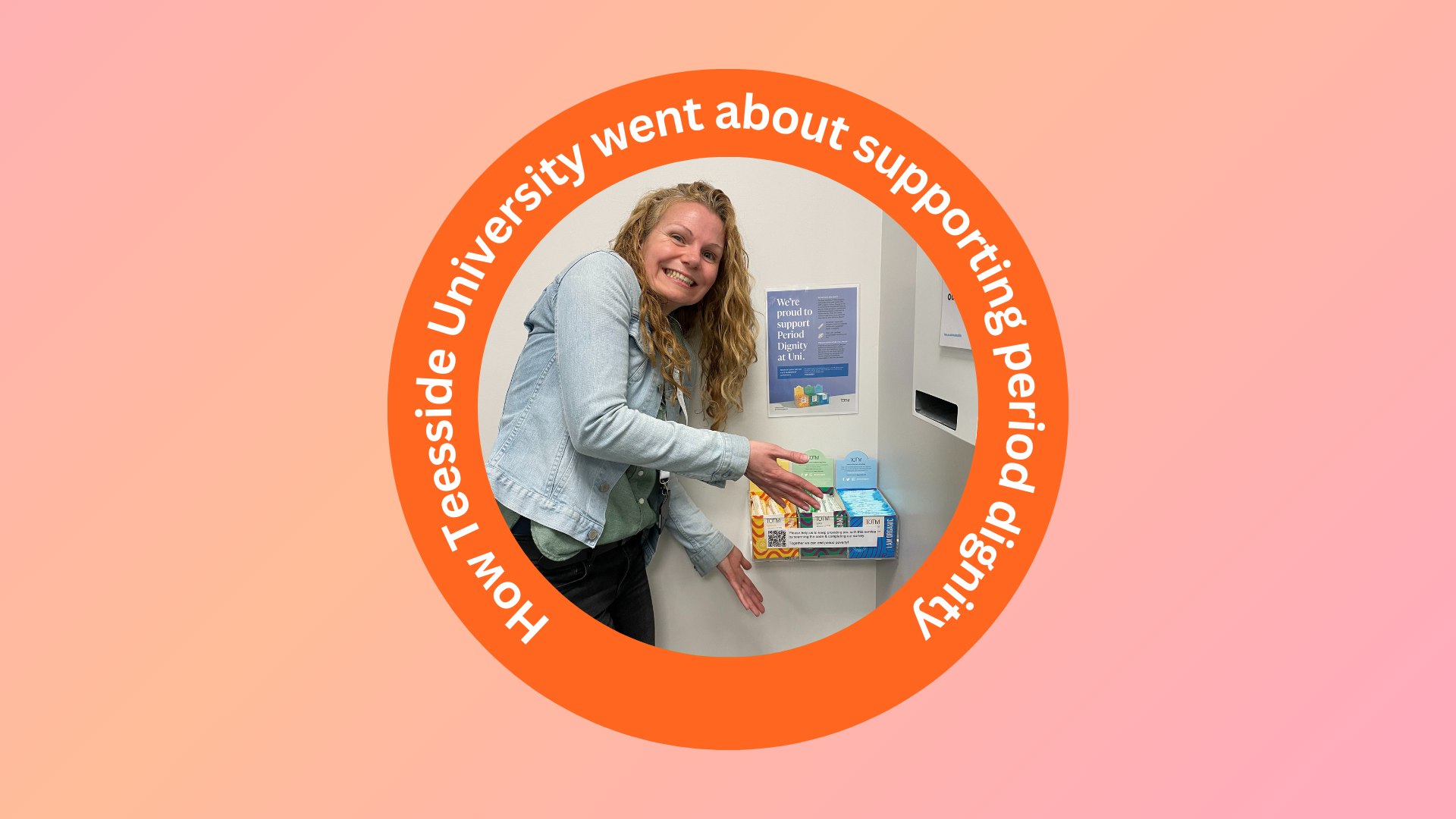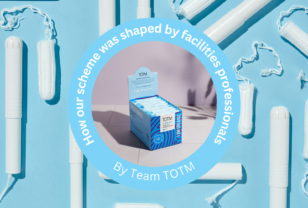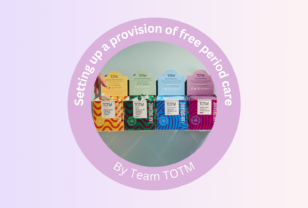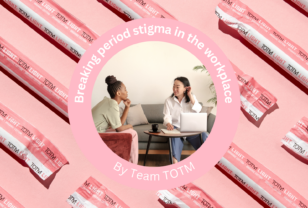Teesside University champion period dignity by providing free menstrual products on site. Here, Vik Brown, Teesside Uni’s Lifestyle Clinic Coordinator & LYL Coordinator, shares how her experience of period poverty inspired here to drive change in the University.
“As a child I grew up in poverty and periods were hard. My Mum couldn’t afford decent period products and the only ones she could buy me would fall out of my underwear. I would wear a pair of shorts under my skirt and sometimes even wrap toilet paper around the pads to hold them in place.
I would constantly worry about bleeding through. It made me feel anxious and I would sweat profusely and overheat in panic. This led to me becoming dangerously dehydrated and as a result I would suffer terribly with cystitis whenever I was on my period.
Now, as a mother to three girls, my wife and I always make sure they are fully stocked up with suitable period products. My daughters also carry spare period products to ensure none of their peers have to suffer getting caught short too.
Starting discussions around period dignity at Teesside University
A few years ago, I raised the idea with our staff about placing period products within the toilets to support period dignity. But it never passed conversational stage, and everyone was too busy to take on the project.
During lockdown, I started reading about period poverty, and discovered the incredible campaign work of Amika George. I read and listened to heart-breaking stories from girls who used their socks as a period product to manage their bleed during a day of school. I read about charity organisations, such as Binti International, who work to destigmatise periods, promote period dignity, and provide better education for all.
At this point the university had shared an update about how it supports equality and diversity within our campus. I emailed my managers saying there can never be equality whilst issues such as period poverty existed and requested to meet with them to discuss the issue further. They agreed, and when my colleagues and I applied the research from other universities to our student numbers, it showed that potentially 2,100 students were missing out on attending university due to period poverty.
Progressing things forward and working with TOTM
The numbers got management’s attention, and we were able to continue working on the project. I had Elisha Lycett, our SU welfare officer at the time, help me research period product companies. We met with quite a few before we came across TOTM. We instantly decided to work with TOTM as they ticked all our boxes – inclusive language, championing period dignity and sustainable, non-toxic period products.
At this stage, Dr Katherine Swainston and Dr Claire O’Malley were keen to get involved by developing research to underpin the campaign and documents to present to management.
The four of us met regularly to get the campaign off the ground but found challenges in obtaining funding to begin the trial; we tried several strategies, but funding remained elusive. We were losing hope, but after speaking with staff within the LGBTQ+ society, I reached out to our Diversity and Equality champion, Juliet Amos. Within an hour of contacting her for help, Juliet offered to help chase the funding.
Before I knew it, we received an offer to fund our trial from campus service management – we were finally getting somewhere! It took around eight weeks for the funding to come through. To reduce further barriers, I formed communication channels with numerous departments and now have many supporters and advocates of the campaign across the university campus.
Overcoming challenging barriers with funding
When re-ordering the products, we discovered no further money was available as it was a one-off payment. This upsetting news was hard to process; I assumed everyone understood that a three-month supply could not prevent period poverty amongst 10,500 students.
After reflecting on this over the Christmas break, I returned back to work in the New Year, determined to explore other avenues for funding. We created a presentation with our preliminary research findings and met with TOTM to calculate an annual budget. And finally, after applying for continuing funding, it was awarded.
Alongside this work, Dr Kath Swainston submitted our campaign findings to be presented as health psychology in action at the British Psychological Society Division of Health Psychology annual conference in London that year.
A positive change for the future
Since launching the pilot period dignity scheme, we have had so many women open up to us about their struggles around periods and how they want to see positive changes for the younger generations. This whole campaign has been an emotional rollercoaster. It’s helped form new friendships within the workplace and has connected so many people. Even Nancy and Hannah from TOTM feel like acquaintances due to the support they continue to show for this campaign.
My wife and children have supported me throughout this project and have put up with my rants and mood changes. I couldn’t have kept going on this without them. Working on this project has taught me that kindness is contagious, and doing something you’re passionate about and believe in motivates others to do the same. The campaign is growing, and other parts of the university have placed period products within their building toilets.
Looking forward, I would like the university to have products available in every toilet facility across campus and to start to branch out into the community.”






